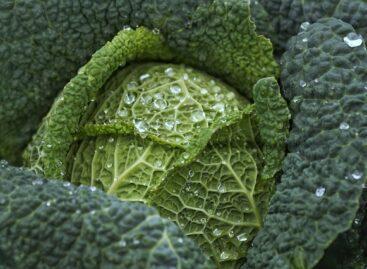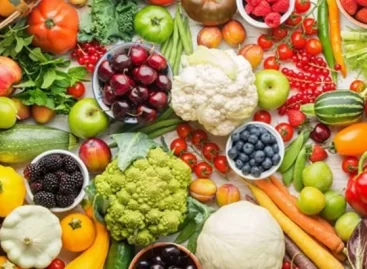Pickled vegetables, regional recipes

Zoltán Hegedűs
commercial director
Kalocsai Fűszerpaprika Zrt.
It takes more time and work to preserve vegetables than fruits. What is more, it also requires more expertise to make pickles at home. According to Zoltán Hegedűs, commercial director of Kalocsai Fűszerpaprika Zrt., every manufacturer tries to make products which are enough for a year, because they can never know what the price and quality of the next harvest will be like. If the vegetables are cheaper than the average in a given year, they produce even more, but this doesn’t happen often as vegetables are often harvested manually, which makes products expensive.
Recipes and preferred pickle tastes differ by region, and this gives small manufacturers the chance to make a wide range of products characteristic of the given region. These products are typically marketed in small plastic buckets or bags. Róza Ruzsbaczkiné Komlós, managing director of RUSA Kft. told our magazine that consumers prefer pickles in 600g bucket and 300g plastic tub formats.

Nóra Czugéber
marketing specialist
Lacikonyha Magyarország Kft.
Nóra Czugéber, marketing specialist of Lacikonyha Magyarország Kft. added that more and more shoppers are searching for some kind of new flavour. The company tries to satisfy this demand with products offering a more intense taste, using special marinades for pickling. Demand is on the rise for Lacikonyha’s chilli- and garlic-flavoured pickles. Consumers like pickled vegetables because they are tasty and healthy. They also reward freshness, so Lacikonyha makes sure that they source the best quality vegetables. Their pickles also work very well as salad ingredients, on tasty bites or as a snack.
The current health trend forces manufacturers to innovate. Kalocsai Fűszerpaprika Zrt.’s products made with sweetener – instead of sugar – are increasingly popular. This year they made more of these, plus the company also plans to use new fruit varieties in production. They intend to manufacture jam and fruit purée too. Kalocsai Fűszerpaprika’s pickles in glass jar are marketed in 720ml and 4,250ml sizes.
RUSA Kft. has modified recipes and refined sugar isn’t used any more in production – this was a reaction to the growing number of diabetes patients in Hungary. Since there are more and more people who can’t tolerate certain types of food, they also started making gluten-free leavened cucumbers 2 years ago. //
Related news
A shortage may develop on the cabbage market, and the price of the vegetable may continue to rise
According to FruitVeb’s analysis, the cabbage market is threatened by…
Read more >Tax evading vegetable and fruit traders were caught by the tax inspectors
Traders selling vegetables and fruit imported from Greece without paying…
Read more >This way the autumn fruit stays fresh for a long time
In the autumn season, we come across an abundance of…
Read more >Related news
The latest issue of Trade magazine is out now!
This time the digital version has been extended to 192…
Read more >After a subdued year, the holiday season is strong
74% of online shoppers, around 3.1 million people, are preparing…
Read more >Lidl has published its 3rd sustainability report
Lidl Hungary’s sustainability report for the 2022/2023 business years has…
Read more >








